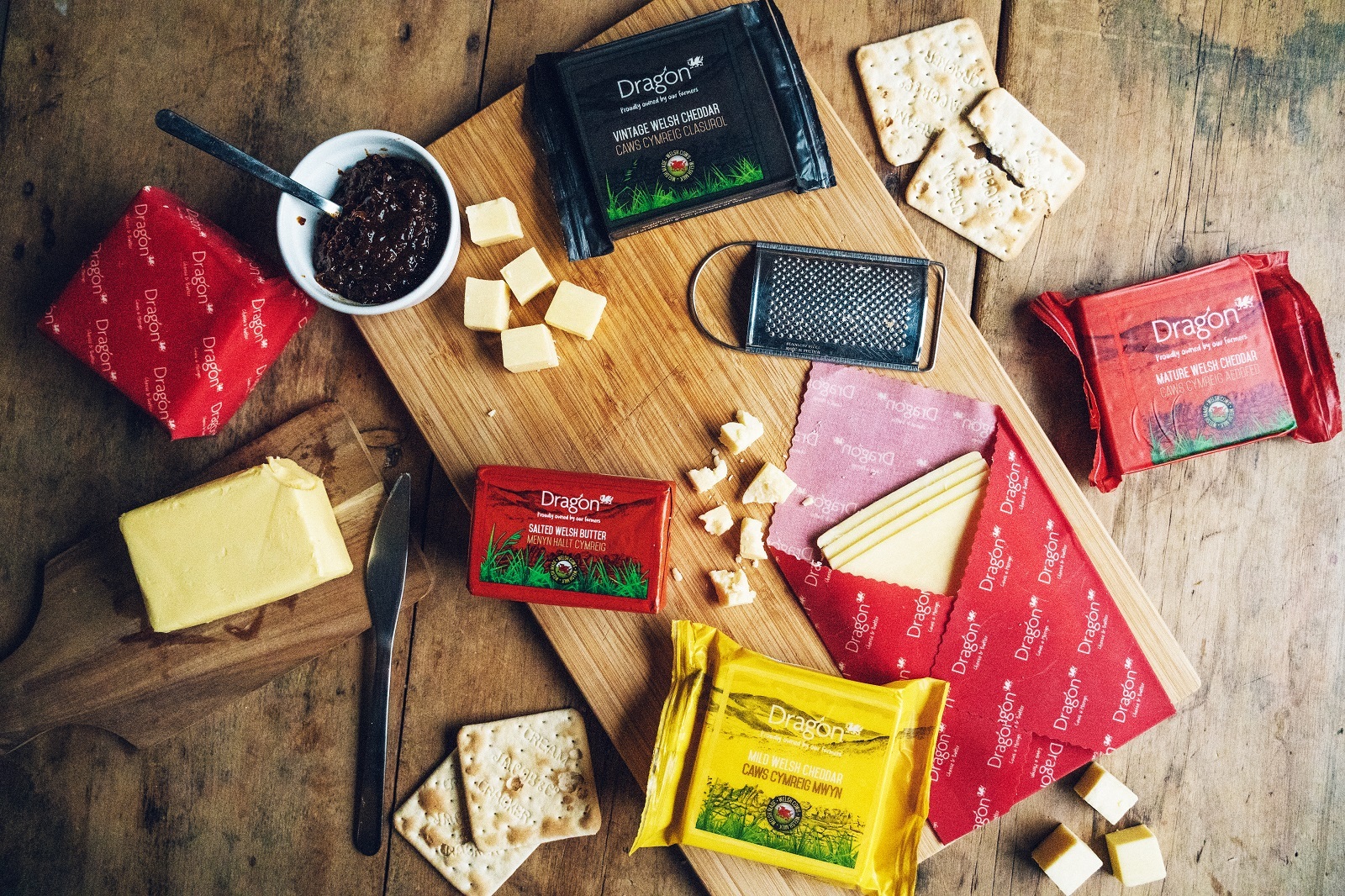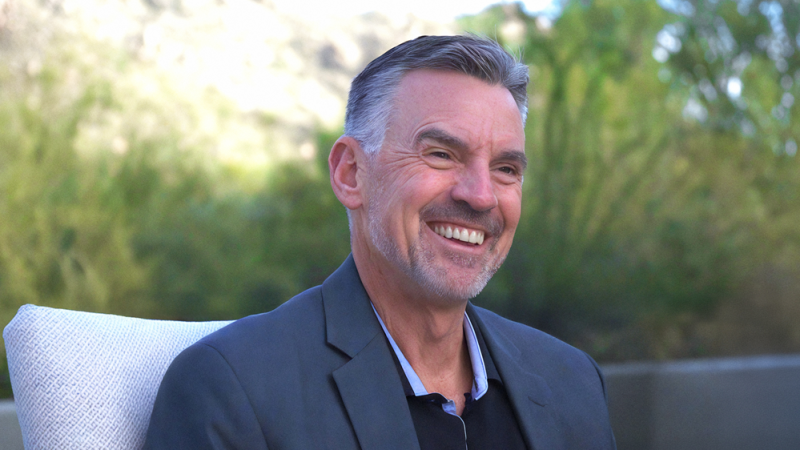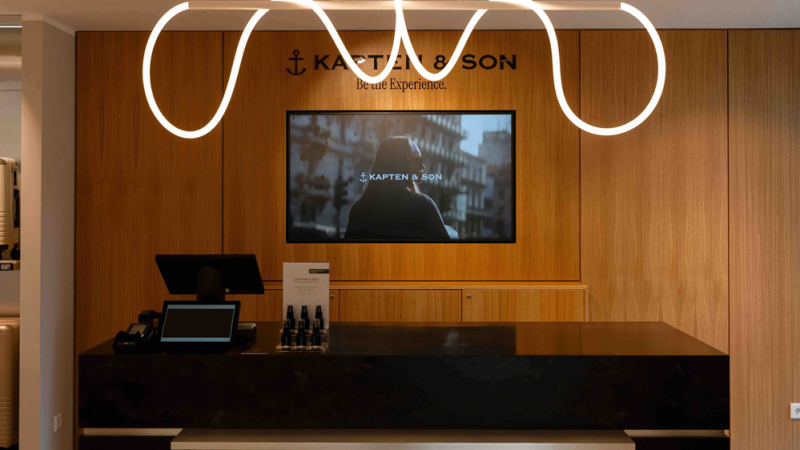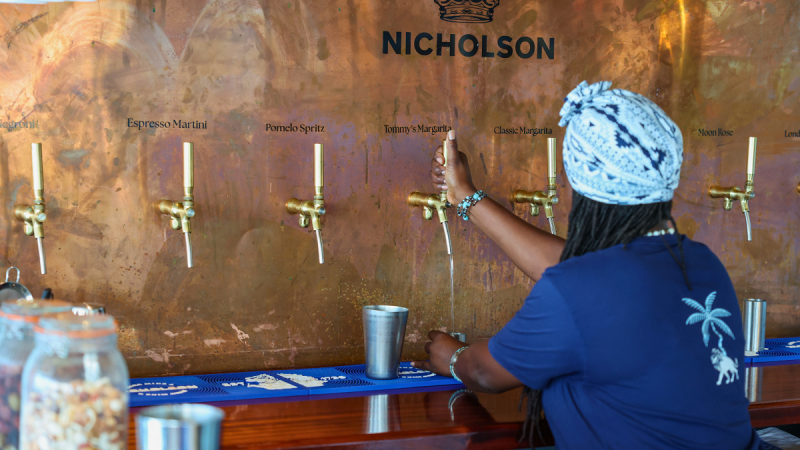From its home on the Llyn Peninsula in North West Wales, South Caernarfon Creameries (SCC) is at the heart of its community. The farmer-owned cooperative was established in 1938 in North Wales by local farmers looking to find a route to market for the milk they produce. 85 years later, with its 150 or so member farms, the company is still a 100% farmer-owned co-op, processing the farmers’ milk into Welsh cheese and butter, manufacturing and marketing those products for its members.
The Vision is to add the highest value possible to its members’ milk through the processing and marketing of both branded and own-label cheese resulting in the cooperative being the No. 1 choice for Welsh farmers for manufacturing milk.
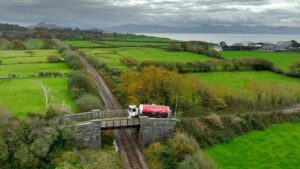 The Mission is to be an added value cheese producer selling a focused and award-winning range direct to major multiples, food service, food manufacturers and export markets by leveraging flexibility and provenance.
The Mission is to be an added value cheese producer selling a focused and award-winning range direct to major multiples, food service, food manufacturers and export markets by leveraging flexibility and provenance.
It is an exciting time for SCC, with the company in the middle of a growth journey since 2016 that has seen turnover increase from £30m to over £90m and its balance sheet strengthened by over £10m.
“It is quite a unique business structure although co-operatives do represent around half of the milk processing sector within the UK,” points out Alan Wyn-Jones, Managing Director of SCC. “From large-scale operators such as Arla Foods, First Milk and Dale Farm, to medium-sized operators such as ourselves, all though with the same objective of providing value for its farmer members”.
SCC’s farmer members own 100% of the business, which exists to process and add value to their milk. Supplier members must produce milk in order to gain shares in the cooperative. As a supply member, the membership requirement is 5p a litre for every litre of milk produced. Therefore, a dairy farm producing 1 million litres would need to invest in 50,000 shares, payable over eight years.
“We exist to add as much value as we can to members’ milk, resulting in a profitable business that can then reinvest that profit to make the cooperative sustainable for the future,” Wyn-Jones says.
While SCC is an undeniably forward-facing business, that business is built on the foundation of a long and proud Welsh heritage.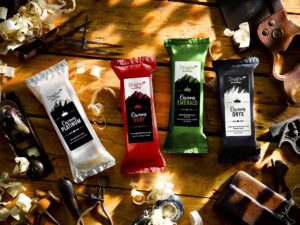
“We are 85 years old, there is a lot of heritage here,” Wyn-Jones points out. “We only process Welsh milk. We are vertically integrated on the same site: milk collection, cheese manufacture, cheese maturation and cheese pre-packing of shelf-ready products. In the highly competitive environment we operate in, the business adds value to its customers and consumers over and above that offered by larger-scale processors by leveraging our unique selling points of the Cooperative model, flexibility and provenance.”
This is made possible thanks to the well-invested and flexible manufacturing site the cooperative maintains. The facility makes around 15 different types of British cheeses, creating a one-stop shop in terms of the various cheese types it manufactures and packs in different formats to meet its customers’ requirements.
The Language of Business
As well as being a valuable resource for local farms to add value to their produce, SCC is also one of the major employers in the North West Wales region. The majority of its 180-strong workforce live within approximately 20 miles of the facility, with also the majority having Welsh as their first language.
“In terms of protecting the Welsh language in our region, we value that very highly,” Wyn-Jones says. “It is a responsibility of ours to do what we can to preserve and enhance the Welsh language both for current and future generations.”
The company currently employs approximately 180 people, and that number is planned to increase by a further 30 to 40 staff over the next two to three years upon completion of its current growth plan and investment.
“Our objective is to continue to be a key stakeholder in the local community and to continue to support Welsh jobs and therefore the Welsh language,” Wyn-Jones says. “We are giving people a sustainable employment option that adds value to the community in which we serve. That’s very important to the cooperative and its members.”
Here Be Dragons
SCC is proud of its Welsh roots so much so that it retains its policy to only process Welsh milk on all of its products, adopt dual language on its packaging and even has its very own successful brand of cheese and butter – called Dragon.
The Dragon brand is a flagship for the business promoting the story of SCC and its farmer members across not only Wales but also the wider UK and ever-expanding export markets.
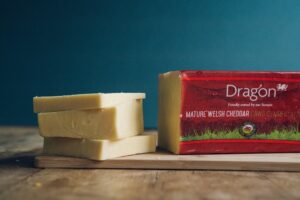 Launched in 2004 the Dragon brand has continued to expand year on year. Beginning with its everyday range of mild, mature, and vintage Welsh Cheddars, the Dragon range has expanded over time to include its premium Handcrafted selection of Cavern Aged Cheese matured in Welsh slate caverns in Harlech near the creamery. The natural cave ageing technique of maturing cheese utilises consistently low cavern temperatures, higher humidity, and low barometric pressure to create perfect conditions for cheese maturation, producing a product that is distinct and full of flavour.
Launched in 2004 the Dragon brand has continued to expand year on year. Beginning with its everyday range of mild, mature, and vintage Welsh Cheddars, the Dragon range has expanded over time to include its premium Handcrafted selection of Cavern Aged Cheese matured in Welsh slate caverns in Harlech near the creamery. The natural cave ageing technique of maturing cheese utilises consistently low cavern temperatures, higher humidity, and low barometric pressure to create perfect conditions for cheese maturation, producing a product that is distinct and full of flavour.
The Dragon range is widely available across multiple retailers, foodservice, and in overseas markets from Europe to the UAE and as far wide as Mexico and Taiwan. Last year Dragon expanded its availability on its home turf, launching a new website with e-commerce facilities, which has been a roaring success to date.
Project Dragon
To further build the cooperative’s capacity to meet the needs of customers, the company has engaged in an ambitious capital investment program known as “Project Dragon”, which will increase its capacity by a further 40% It is a development that will make SCC more sustainable for future generations while providing its current members with the opportunity to make their own farming businesses more sustainable.
“We have many environmentally sustainable projects and initiatives that are running within the business,” Wyn-Jones says, pointing to the company’s Green Dragon environmental standard.
“We are currently at level 4 aiming to achieve the highest level of five in the next year. The standard, allows organisations to gain a third-party certification that provides recognition of their environmental practices and demonstrates their commitments to sustainability, consideration of environmental impacts, compliance with legislation and environmental protection.”
That certification sits alongside the company’s BRC Grade-AA+ and Red Tractor Farm Assurance.
The creamery’s investment programme is a £21.5 million sustainable growth plan that will help it to increase capacity over the next three years. Project Dragon involves investment in the re-development and expansion of the cooperatives core cheese business.
The primary objective of the investment is to become the most efficient, vertically integrated, top-end medium-sized cheese facility in the UK with industry-beating service.
“The objective is to take us to the top end of middle-tier cheese production in the UK,” Wyn-Jones says. “Reaching the 23,000-ton production level will make us more sustainable and more profitable and more robust to the challenges that we will undoubtedly face going forward. It’s very much about retaining our values, doing more of what we have been doing, and making sure we are working with quality customers that add value to our members’ milk.”
Driven by its farm-to-plate philosophy, South Caernarfon Creameries will continue to stay true to where it has come from, and where it is going, with significant planned growth over the next three to five years.
